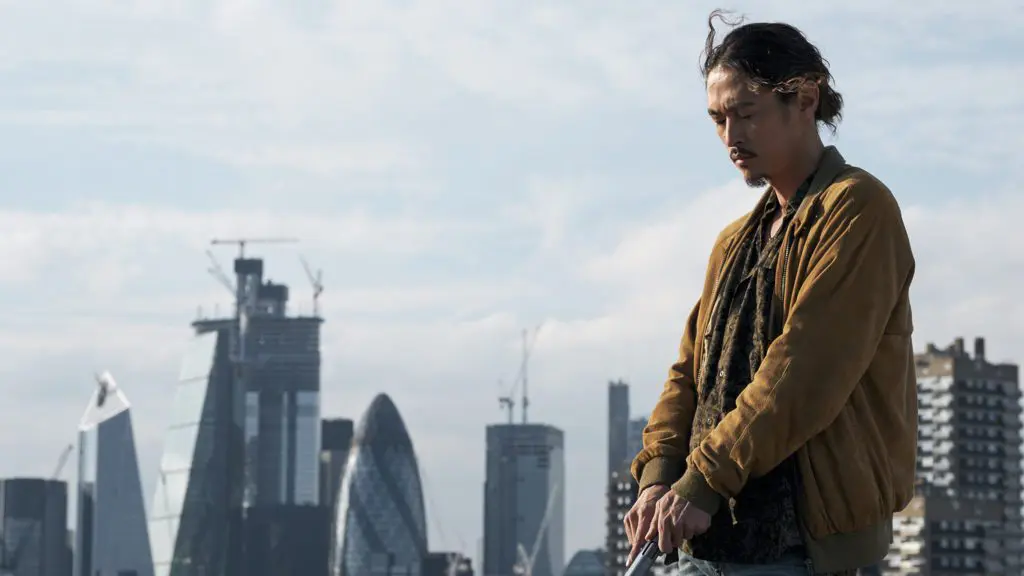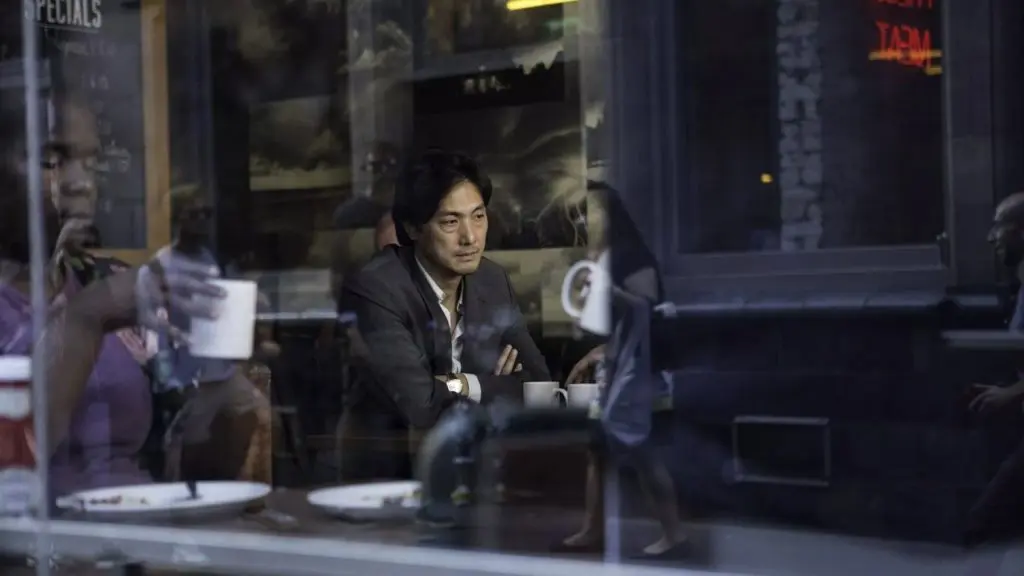Summary
Giri/Haji is an extraordinary creative accomplishment; brazenly original, deeply moving, and quite unlike anything you’ve ever seen.
This review of Giri/Haji Season 1 is spoiler-free.
Joe Barton’s Anglo-Japanese thriller Giri/Haji – which translates roughly as Duty/Shame – aired late last year across eight weeks on BBC2. Virtually nobody watched it. Now, though, they have their chance, since the whole thing airs on Netflix this Friday, January 10, and I’m here to declare unequivocally that it’s an extraordinarily audacious genre-fusing intercontinental masterpiece unlike anything else you’ve seen in ages.
As for why nobody watched it in the first place, it debuted on the lesser of the Beeb’s terrestrial channels, doesn’t have a particularly Anglo-friendly title, and the first half of the first episode was entirely in subtitled Japanese. It was immediately dense and complex, with Netflix’s bottomless coffers helping to craft a dual-setting thriller stretching from Tokyo to London and back again, incorporating elements of family drama, police procedural, gangster epic, and coming-of-age tale. Nothing about it was easily classified or understood; from the jump, it was entirely its own, bizarre thing, and it was only as the show developed across its eight-episode season that its off-kilter quirks, multimedia flourishes, and ballsy creative choices really coalesced.
The inciting incident is the murder of a yakuza gangster in London, the reverberations of which are felt in Tokyo by both the police and the crime family to whom the victim belonged. Sent to the English capital to investigate, Japanese detective Kenzo Mori (Takehiro Hira) leaves an increasingly distant wife and rebellious daughter, Taki (Aoi Okuyama), to track the killer in Blighty, spurred on by the fact that the killer is strongly suspected to be his presumed-dead brother Yuto (Y?suke Kubozuka). In London, Kenzo quickly teams up with half-Japanese drug addict rent boy Rodney Yamaguchi (Will Sharpe) and disgraced Met officer DC Sarah Weitzmann (Kelly Macdonald), who eventually form a kind of oddball surrogate family.

Each of these characters is admirably complex, sucked into London’s underworld where Yuto is working as the enforcer of Cockney gangster Connor Abbot (Charlie Creed Miles). The central, brooding relationship between the brothers is masterfully done, ensuring a deeply personal conflict remains the focus even amid burgeoning chaos, but it’s arguably the supporting players who have the most to offer. Sarah is personally and professionally isolated after telling on her corrupt-cop ex-boyfriend, which isn’t an altogether original backstory, but Macdonald sells it like a pro. Will Sharpe is revelatory as the absurdly charismatic Rodney, who is grappling with his erratic and selfish lifestyle having caused the suicide of his ex-partner; he’s easily the funniest but also the most tragic figure in the story. And Kenzo’s runaway 16-year-old daughter Taki has her own journey of sexual discovery, suddenly freed from Japanese familial formality.
You’d think this would be enough for Giri/Haji to be going on with, but it never stops expanding its scope or ramping up the intensity. Just as you think you understand a character a flashback will reveal the doomed love story that motivates them, or just as you think the investigation is slowing down a breathless gangland gunfight will ensue and turn the whole case on its head. Characters consistently switch their loyalties or get unceremoniously killed off. By the time the latter half of the season incorporates parallel stories in Tokyo involving both inter-family Yakuza plotting and an unlikely all-female road trip rescue mission, you’ve long-since given up trying to predict what the show might do next. And it’s all the better for that brazen unpredictability.
This is all presented with obvious artifice; graphic novel-style episode recaps complete with narration open each hour-long installment, and that’s usually the least weird thing about any given episode. Exaggerated caricatures become three-dimensional pop-up characters so naturally and suddenly that you can never quite identify when it happened; all you know is you suddenly care about this maniac gangster or his callous enforcer when you didn’t the last time you checked. There’s a scene in the finale that I know I should hate – a monochrome, slow-motion interpretive dance sequence out of absolutely nowhere – that moved me to tears, wordlessly encapsulating all the complex relationships that had defined Giri/Haji until that point with extraordinary power.
There is simply nothing else like this anywhere on television. It’s so many things at once yet uniquely its own thing; a story of family, both biological and surrogate, but also of identity, love, loss, betrayal, purpose, life and death. In its ambition and complexity, it finds time for contemplation and poignancy; it interrogates its own themes and characters better and more completely than any show in recent memory. The result, while often confounding, is deeply moving and wholly original. Giri/Haji is a stunning creative accomplishment, and quite possibly a masterpiece.
READ: Hard Days Review




